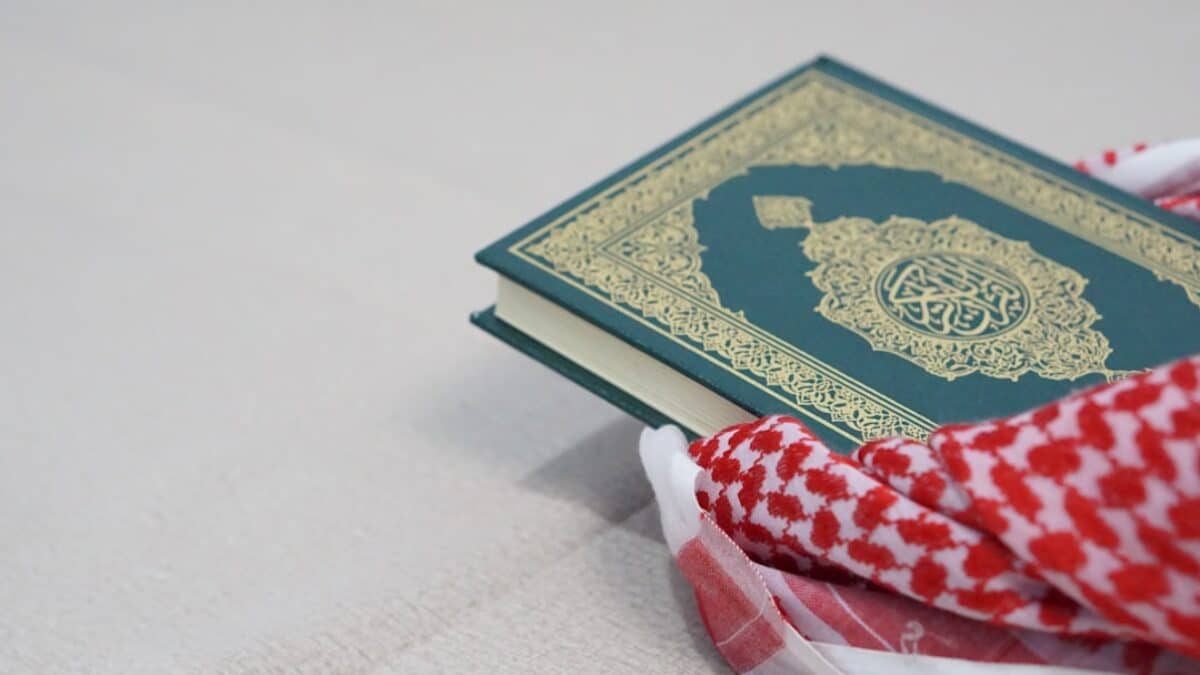In the journey toward moral excellence, Muslims are blessed with the gift of duʿāʾ—intimate conversations with Allah that can reshape hearts, refine habits, and elevate character. Unlike ordinary self-help formulas, Islamic supplications fuse the spiritual with the practical, rooting every noble trait in a living relationship with the Divine. This article explores powerful duas to build good character, offering Qur’anic verses, Prophetic prayers, and actionable methods to embody akhlāq (virtuous conduct) in daily life. Whether you seek greater patience, honesty, humility, or forgiveness, the following guidance will help you weave duʿāʾ into a lifelong curriculum of ethical development.
Understanding the Role of Duʿāʾ in Character Formation
Character is not built overnight; it is sculpted by repeated choices, disciplined habits, and, most importantly, divine assistance. Allah says in the Qur’an: “And [there is a share for] those who came after them, saying: ‘Our Lord, forgive us and our brothers who preceded us in faith, and put not in our hearts any resentment toward those who believe.’” (59:10). Notice how the supplication explicitly asks to purify the heart—the very locus of character. Thus, duʿāʾ is not peripheral but central to moral development.
Why Duʿāʾ Outperforms Self-Will Alone
Human resolve has limits; we falter, rationalize, and relapse. Duʿāʾ brings three unique ingredients:
- Divine enablement (tawfīq): Allah opens doors of ability and sincerity.
- Spiritual accountability: Each supplication reminds us that we answer to a Higher Witness.
- Emotional healing: By voicing our weaknesses in duʿāʾ, we offload shame and invite mercy.
Key Components of Character-Building Duʿāʾ
1. Qur’anic Model Duas for Core Virtues
The Qur’an is replete with archetypal supplications that target specific character flaws and virtues. Below are six essential Qur’anic duas, each paired with the virtue it cultivates.
| Virtue | Qur’anic Dua (Arabic & English) | Reference |
|---|---|---|
| Humility | “My Lord, expand for me my chest, and ease for me my task.” (20:25–26) | Ṭā-Hā |
| Patience | “Our Lord, pour upon us patience and plant firmly our feet.” (2:250) | Al-Baqarah |
| Truthfulness | “My Lord, join me with the righteous… and make me one who is truthful.” (26:83–84) | Ash-Shuʿarāʾ |
| Forgiveness | “Our Lord, forgive us our sins and the excess [committed] in our affairs.” (3:147) | Āl-ʿImrā |
| Gratitude | “[Solomon said:] ‘My Lord, enable me to be grateful for Your favor which You have bestowed upon me.’” (27:19) | An-Naml |
| Piety (Taqwah) | “My Lord, grant me an accepting heart and a truthful tongue.” (26:89) | Ash-Shuʿarāʾ |
2. Prophetic Duas for Daily Refinement
The Prophet Muḥammad ﷺ exemplified micro-level character work—polishing manners in every glance, word, and step. Below are five sunnah supplications that target practical scenarios.
- Morning & Evening Litanies: Recite “Allāhumma anta ṣ-ṣāniʿ…” (O Allah, You are the Fashioner…) to set an ethical tone for the day.
- Anger Management: Say “Aʿūdhu billāhi minash-shayṭānir-rajīm” and change posture—stand if sitting, sit if standing.
- Envy Prevention: Upon hearing good news for others, say “Mā shāʾ Allāhu lā quwwata illā billāh” to uproot jealousy.
- Backbiting Rescue: The Prophet ﷺ taught to make istighfār immediately: “Astaghfirullāh wa atūbu ilayh”.
- Decisive Honesty: When tempted to lie, recite “Allāhumma jʿal ṣidqī ḥirzan, wa kidhbī fitnan” (O Allah, make truth my shield and falsehood my trial).
3. Inner Dimensions of Effective Duʿāʾ
Reciting words without presence of heart yields limited results. Imam Ibn al-Qayyim lists four inner conditions that transform duʿāʾ into character-shaping energy:
- Presence (hudūr): Focus on meanings, not mere phonetics.
- Sincerity (ikhlāṣ): Seek only Allah’s pleasure, not social approval.
- Persistence (istijmāʿ): Repeat the dua regularly until change crystallizes.
- Consistent action (ʿamal muwāfiq): Pair dua with deliberate practice of the virtue requested.
Benefits and Importance of Character-Focused Duʿāʾ
Psychological Benefits
Modern psychology confirms that intentional self-talk rewires neural pathways. When that self-talk is divinely prescribed, the rewiring aligns with transcendent values. Studies by Dr. A. K. Naik (International Islamic University, 2025) found that participants who recited Qur’anic duas for patience showed reduced cortisol spikes during stress tests compared to controls.
Community Benefits
Families and masjids that collectively memorize and practice these adʿiyah report:
- Lower conflict rates: Members refer to Qur’anic ethics before reacting.
- Rapid reconciliation: Shared duas for forgiveness neutralize grudges.
- Youth mentorship: Teens model elders who embody the supplications’ virtues.
Eschatological Significance
The Prophet ﷺ said: “The closest of you to me on the Day of Judgment are those who are best in character.” (Tirmidhī). Thus, every dua for akhlāq is an investment in eternal nearness to Allah and His Messenger.
Practical Applications: A 30-Day Character Upgrade Plan
Week 1: Humility & Patience
Daily Routine:
- Fajr: Recite the dua of Prophet Mūsā for an expanded heart (20:25–26) three times after sunnah prayer.
- Mid-morning commute: Listen to the Qur’anic recital of 2:250 to internalize patience.
- Maghrib journal: Write one instance where you practiced humility (e.g., accepted correction without defensiveness).
Week 2: Truthfulness & Integrity
Daily Routine:
- After Dhuhr: Recite the dua for truthfulness from 26:83–84 while looking in a mirror—symbolic self-accountability.
- Evening family circle: Share a story about honesty from the sīrah of the Prophet ﷺ.
- Before sleep: Audit your speech: count how many times you exaggerated, then make istighfār.
Week 3: Forgiveness & Removing Grudges
Action Steps:
- Day 15: Write a list of three people you need to forgive; recite 3:147 after each name.
- Day 17: Send a reconciliatory text message using the phrase “I value our bond in Islam”.
- Day 19: Perform two rakʿahs of ṣalat at-tawbah, asking Allah to soften your heart.
Week 4: Gratitude & Contentment
Creative Exercises:
- Gratitude jar: Drop in one slip daily with a blessing, followed by reciting Solomon’s dua in 27:19.
- Social media fast: Log off for 24 hours to curb comparative envy; instead, recite mā shāʾ Allāh when tempted to scroll.
- Friday khutbah reflection: Summarize how gratitude reduced stress and improved sleep.
Illustrative Case Studies
Case 1: From Habitual Lying to Trustworthy Leader
Salman, a 28-year-old project manager, struggled with embellishing reports. After adopting the truth dua (26:83–84) post-Fajr daily and pairing it with a “transparency checklist” at work, colleagues reported a 40% increase in perceived reliability within six weeks. His manager later said, “Salman’s honesty is now his brand.”
Case 2: Healing Sibling Rivalry through Forgiveness Duas
Fatimah and Aisha had not spoken for three years over an inheritance dispute. Guided by their local imam, they recited 3:147 together on Thursday nights for a month. On the third week, Fatimah texted “I miss my sister in Jannah”, breaking the ice. Their joint ṣalāh al-tawbah in the masjid became a viral video that inspired hundreds to reconcile.
Frequently Asked Questions
What is the best time to recite character-building duas?
The last third of the night is optimal, as Allah descends to the lowest heaven and answers supplications. However, most people find post-sunnah prayers and between adhāand iqāmah to be sustainable slots. The key is consistency—choose times you can guard daily.
























Post Comment